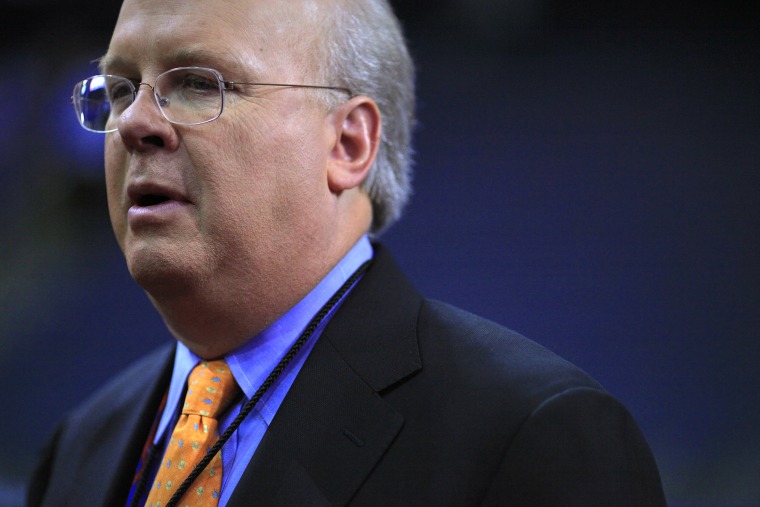Karl Rove’s political influence may finally be starting to crumble.
Two-thirds of Americans polled in a new Washington Post/ABC News survey said they opposed Rove’s decision earlier this month to raise questions about former Secretary of State Hillary Clinton’s health should she run for president in 2016. Only 26% supported the basis of his argument.
Large majorities of Americans disapproved of Rove’s train of thought, and it was not just Democrats. Men, women, Independents, white voters, young and old, from all regions across the nation expressed their opposition to the oft-quoted GOP strategist's tactics. Even 46% of Republicans disapproved of Rove's actions.
According to reports surfaced earlier this month, Rove suggested that Clinton’s 2012 health scare may have resulted in a traumatic brain injury. The former George W. Bush adviser later denied characterizing her condition as “brain damage,” but continued raising questions about Clinton’s health, arguing it’s going to turn into a hot topic in 2016 “whether she likes it or not.”
Republican National Committee Chair Reince Priebus defended Rove not long after, saying it was “fair game” to talk about Clinton’s health just as it was for Ronald Reagan and John McCain during their respective presidential campaigns.
Indeed, as the Post notes, 42% of registered voters polled in 2008 felt at least “somewhat” uncomfortable with the then 72-year-old McCain taking office. If election, Clinton would be 69 at the start of her first term.
However, the public backlash in this case, which was not confined by partisan ideology, suggests that broad attacks against the former first lady's health may not be well-received by voters should she enter a second presidential bid.
The poll, conducted May 21 to 25, randomly sampled 1,017 adults across the country on cell phones and land-lines. The results have a 3.5 percentage-point margin of error.
